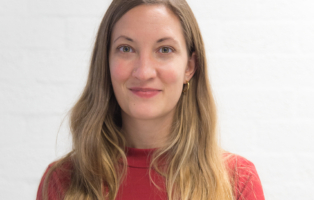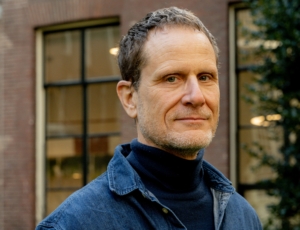
Louisa Schneider on houselessness
I will start off a bit weirdly by asking if you ever slept in a hotel. I have and, despite the nice room, I found it difficult to sleep. You know that sensation when you’re in an unfamiliar environment? The room was a bit too bright, the bed linen a bit too smooth, and the air conditioning made the room a bit too chilly. It was simply different from my bedroom.
That I, and I’m not alone in this, don’t necessarily sleep best in the best hotels shows us that our experience of dwelling is deeply intertwined with our emotions. So much so that we have turned *apartments* into emotional *homes*.
Linking social needs to housing
This brings us face to face with a fundamental problem of our time. While more and more people do not have housing, we have created societies that link social needs, and with them basic rights and protections, to housing.
Just consider what is most important to you in life. Do you think of loved ones, friends, family, or do children come to mind? Do you have a personal or professional goal? Is it health or well-being? Perhaps you are looking for security and stability or crave adventure? Whatever it is, to realize it in this society, you need housing.
Not because it would be better with housing, but because it is impossible without. The reason for this lies in the building blocks of our society. We have separated housing and living as the private sphere from that of the public. And our entire legal, political, and social system is based on this separation. Without housing, there is no privacy, no retreat and no protection for relationships, families not even the possibility of retaining custody of children or freely living intimate relationships. Imagine going on a date that goes well or being in love without being able to retreat together, to close and lock a door. Imagine your most basic bodily functions and needs, washing yourself, going to the toilet…become a public nuisance, in the worst case a criminal offense.
Not having an address makes health, safety, or political participation impossible to realize without help. Housing is necessary for much more than an adequate standard of living. If you have no housing, what we consider to be inalienable societal foundations become unattainable.
Analyzing the individual and social consequences of houselessness
For the past seven years, I have been analyzing the individual and social consequences of houselessness and the associated restrictions on basic rights in Germany and now in the Netherlands. I conduct ethnographic fieldwork which means that I live with people experiencing houselessness under their conditions. I also advise political decision-makers and practitioners.
In these circles, the same question are asked repeatedly: First, who are the people who experience houselessness?
The answer to this is simple. They are “all of us” with one difference: housing. Houselessness does not only affect a small part of our population, but a constantly growing group of people from all walks of life.
Among the people I do research with are Josef, a father of three who became houseless after a divorce and then lost his children; Ivo, a student about to graduate from high school; Sonia, who is transgender and whose parents kicked her out; Michael, an economics professor who became houseless due to burnout; Lars, who cycles from his tent to work at the train station every morning; Janine, who was already in the system as a child; and Sarah, who is in her mid-80s and lives in a basement with a friend of the same age. They are pupils, students, recently divorced parents, employees, former members of the upper class and many, many pensioners.
It is a mistake to think that the fine lines between stable housing, insecure housing and houselessness are anything but that: fine lines. Social rental collides with free market dynamics, environmental concerns stop construction projects, vacancies meet speculation with land, exploding prices drive middle-income earners out of the cities. Some have no choice but to move back in with their parents, others turn down jobs or promotions to keep social housing. Some decide not to have children due to a lack of living space, while still others live with far too many family members in tiny, overcrowded apartments or are not registered anywhere. Houselessness is not just the product of capitalist shifts either, but the result of growing individualization and of the impossibility to not be ok for a moment at least not if one doesn’t have a social or financial safety net. It so shows our collective inability to socially absorb suffering, trauma, and loss.
Why do we stick to limited perceptions about who is affected? Because the assumption that houselessness is mostly self-inflicted and that houseless people are somehow different from housed people is a flawed coping mechanism. So long we do this, we can live with the illusion of safety: We assume that it won’t happen to us. But it can and it might.
And if you become houseless, will the aid system catch you?
The assumption that the aid system will catch all those in need is by no means true. Many people I do research with have never used services. Ask yourself seriously: would you know if one of the people you care about became houseless? If you are now nodding inwardly, ask yourself again. In a society that is drifting apart, houselessness is often invisible. Many research participants successfully hide it. A woman in her 80s who became homeless after the death of her husband now sleeps under a balcony. None of her acquaintances know, nor do her children, who live in other cities and whom she calls weekly from a friend’s phone. Others say they have ‘moved in with a friend’ or ‘gone traveling’ and so disappear from the radar.
Ok so, people must turn to the aid system to get help. And then they can obtain housing?
Wrong. Germany and the Netherlands work according to a tier system. Housing is not seen as a basis for overcoming social problems, but as a goal, as something you must earn by overcoming social problems. Once the apartment is gone, the road back is long and rocky. It leads through various levels of temporary accommodation. Many cannot shoulder the mass of expectations and get stuck.
A former cleaner explains: “The help system is like a big gateway. You walk up to it and BÄM someone throws a huge pile of rubble in your way. Look, there’s all the problems you have already caused. Shovel them away and we will see. And you stand there with your little wooden shovel and start shoveling. And with every step comes a new pile. You get smaller and smaller, and the demands get bigger and bigger. You see the disappointment on the faces of the social workers and officials you would so much like to please. You still don’t understand how you ended up here, after all, you just haven’t opened your mail for a few months. At some point you’ll give up.”
The shortages of affordable apartments are skyrocketing and the waiting lists for social housing exceed a decade. So, you can see how wrong it is to assume that everyone can escape houselessness if they just want to and that those who don’t simply have to want it more. For many people, houselessness becomes as much a constant as dependence on the aid system.
Others, exhausted, turn away from their attempts to regain housing. For them, one thing becomes more and more central: the community of the street.
Why? A mother of two who became houseless because of domestic violence and then lost her children explains: “Being houseless means thinking yourself and the world small. Everything that matters becomes unattainable. Not just possessions, but also children, family, a job, a task. And, because thinking small can make you misjudge how you are doing, especially health-wise, you need others to look out for you to survive.” A houseless policeman is less diplomatic: “Without the others on the street, you die, simple as that.” Street communities have a fundamentally different structure than aid systems: they are not about changing people, but about surviving together.
We need to understand that people experiencing houselessness leave the support system because they cannot realise fundamental needs there, not because they refuse support. In Leipzig, for example, this can be seen in the main night shelters, which are segregated by gender. However, for many of those affected, as is probably the case for you, home is located in loved ones. They are not prepared to part for a roof over their heads and therefore remain on the streets.
Let’s summarize the problem.
Home is not just where the key fits, but where we feel at home. And this “feeling at home” is associated with basic needs and protection, a place to retreat to and a sense of belonging.
If the aid system is based on individualization and separation; if we expect those affected to overcome their problems before we give them a chance, while we push them from one unstable situation to the next, the aid system will strengthen precisely those mechanisms that lead to houselessness and inevitably fail.
If we suggest to people experiencing houselessness that they are disappointing and burdensome, that they have no place in our society while they struggle up the rungs of the support system, then at some point they will stop trying.
So, what to do?
Opinions are like boxes without an opening. Reflection begins when we question something that we previously took for granted. One way in which this can happen is in dialogue, another through introspection. This meal allows for both.
I very much hope that I could do my part to show that houselessness is a societal not an individual problem one that we can and must solve together. To eliminate houselessness rather than manage it, we must close the gaping hole between the “roof over our heads” and the “home”. Especially now, when houselessness is rising massively worldwide. The few exceptions are countries where housing is a basic right, where those affected are first given an apartment and then offered social support. The roof over their heads thus becomes a secure base from which a home can be formed. These countries show us that ending houselessness is not a question of housing availability or opportunity, but a question of priorities, redistribution, and rethinking. Thinking about what needs to change among the housed as well. How much space do people really need for instance, how long can we keep our current housing patterns intact, how much speculation or empty properties should and can be accept, etc.? These countries chose to fund prevention and rapid rehousing instead of maintaining an extensive social safety net with numerous drop-in centers, emergency shelters, outreach street social work, emergency medical care, etc. They have also shown how wrong the assumption is that housing must be learned; proving instead that when housing is made available unconditionally, not only is housing stability improved, but also health, well-being, and social inclusion.
This text was previously published in the Nederlandse Boekengids and was the table speech at the Freedom Lunch on 7 May 2024.



